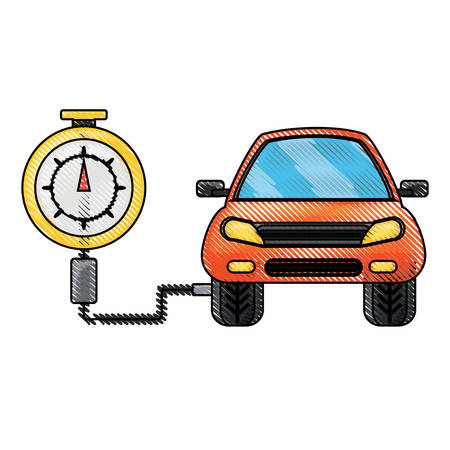At 88, I’m mostly a homebody, no longer much interested in travel, but recently I drove halfway across New Jersey to see a play my son, Jeffrey, directed at a community theater. I couldn’t come back the same day because I don’t drive after dark, so I was looking forward to a rare night in a hotel.
The trip was a lesson in how much the world has changed in ways that make life more challenging for many people but especially for older folks like me.
From where I live near the Jersey Shore, the drive to Princeton takes an hour, and I was about 30 minutes in when my car made a funny noise and a warning light popped up on my dashboard. It would have been too small for my old eyes to recognize if I hadn’t seen it before through a magnifying glass. It meant that one or more of my tires didn’t have enough air in it.
I was still many miles short of Princeton and the car seemed all right, so I decided to continue on. All the same, I was worried, and if my body had had warning lights, the stress icon would have been flashing.
In Princeton, I met my daughter Rebecca at the hotel and soon discovered that hotels have changed since the last time I stayed in one, pre-COVID. The room had an immense, king-sized bed that was so high, I knew I couldn’t get up onto it.
“Try this, Mom,” Rebecca suggested. She got a bit of a running start, jumped and managed to fling enough of the top half of her body onto the bed that she didn’t slide off. Then she wiggled around until the rest of her body caught up.
Jumping is no longer something I do, so I didn’t even try. Instead, I called the front desk and asked for a step stool. The guy who answered didn’t sound even slightly surprised at the request. Evidently, I wasn’t the only guest unable to mount the bed. I’ll bet quite a few of those who failed were older people.
The room was also unfriendly in another way. There were no towel racks to hold wet towels. There weren’t even hooks mounted on the walls. Apparently, guests were supposed to drop used towels on the floor or drape them over the top of the shower door or the edge of the bathroom basin.
Were towel racks and hooks now considered eyesores? If the hotel was going for a sleek, uncluttered look, it wouldn’t last long as the used towels piled up, not to be replaced (according to a notice on the wall) for at least three days.
Dinner and the play were excellent, but back at the hotel, I couldn’t wait to get to bed (via the step stool). I’d had insomnia the night before and got only about four hours sleep. I set my travel alarm, which I’d brought with me, for 8:00 the next morning. My son had offered to take me to breakfast and help me with my car’s tire problem.
When I woke to the familiar trilling of my alarm clock, it was still pitch dark. I hit the off button but the clock kept on warbling, so I turned on the bedside lamp. The alarm was still set for 8:00, but it was 3:30 in the morning. I pushed the “off” button repeatedly but nothing happened. The clock wouldn’t shut up.
No way was I going to be able to get back to sleep with that racket going on, and I was starved for sleep. Though I was barely half awake, I knew I had to muffle the noise somehow.
I dismounted from the bed and tried shutting the protesting clock in a dresser drawer. Didn’t help. Smothering it with a pillow didn’t work either, so I popped it into the room’s small refrigerator. I thought surely that would swallow the noise, but when I closed the fridge door, I could still hear it clearly, even from the other side of the room. In desperation, I decided to put the clock out in the hall, as far as possible from anyone’s door, and disown it. (“Who, me? I never saw it before.”)
I returned to the fridge, got the clock out and realized, as I did, that the noise level hadn’t changed at all when I opened the fridge. Perhaps the evil device in my hand wasn’t producing it? Belatedly, it occurred to me that, like most hotel rooms, this one came with an alarm clock of its own.
Sure enough, that was the one still trilling away. It sounded exactly like my travel clock. I turned off the offending alarm, scaled the bed again and finally got back to sleep.
Next morning, I drove at a gingerly speed to my breakfast date with my son. Afterward, at a gas station, he tried to put more air into my tires, but the car had lied—none of them were short of air. It was another false alarm.
Later, I did some thinking about that hotel room with its pretentiously massive bed and my car with its warning light, represented on the dashboard by a symbol too small for me to read without a magnifying glass.
Obviously, the modern world isn’t designed with any thought for people my age. Making things bigger and “smarter” may please the young, but I’m guessing that what most older people prefer—OK, what I prefer—is comfort and simplicity.
Apparently, it’s too late for that.

Flora Davis has written scores of magazine articles and is the author of five nonfiction books, including the award-winning Moving the Mountain: The Women’s Movement in America Since 1960 (1991, 1999). She currently lives in a retirement community and continues to work as a writer.



